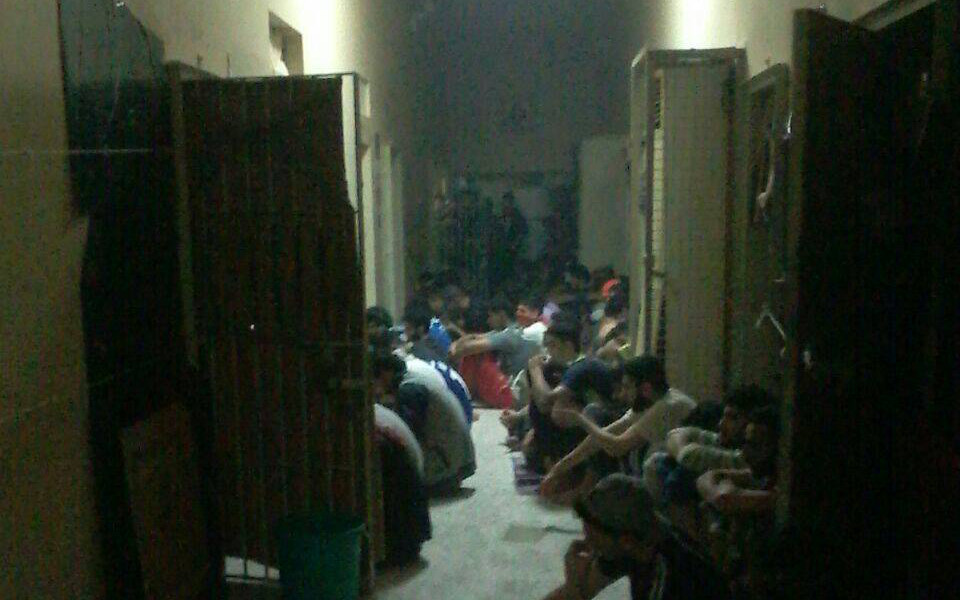Bahrain, a small island in the Gulf with a population of 1.5 million, is currently facing a severe human rights crisis within its prison system. It has one of the highest incarceration rates per capita in the Middle East, which demands immediate attention. Since the pro-democracy protests in 2011, the Bahraini government has initiated widespread crackdowns, resulting in the imprisonment of thousands, including prisoners of conscience.
The seriousness of the situation becomes evident when we consider that there are approximately 3,800 individuals currently imprisoned, out of which a staggering 1,200 have been identified as prisoners of conscience. The inmates are housed in overcrowded conditions, with the prisons running at 30% over capacity. The prisoners are allowed to spend only an hour and a half per day for outdoor activities, which worsens the already harsh conditions they face. Some prisoners are compelled to stay in their cells for up to 23 hours a day, not to mention those subjected to prolonged solitary confinement.
The problematic situation faced by prisoners has compelled them to express their needs and requests, ranging from an end to prolonged solitary confinement to increased outdoor time, the right to congregational prayer, unimpeded family visits, and improved healthcare access. The American for Democracy and Human Rights in Bahrain (ADHRB) sheds light on distressing torture methods, such as beatings with fists and weapons. Instances of excessive force in response to riots unveil indiscriminate beatings, tear gas deployment, and collective punishment for the entire prison population.
The NGO’s report stated that prison authorities had responded to a riot in March 2015 with excessive force, intensifying torture. Despite only a minority participating in the protest, the entire prison population faced collective punishment. Tear gas and beatings were indiscriminate, even affecting minors. After regaining control, authorities continued the torture, depriving inmates of basic necessities.
In August 2023, an important hunger strike took place at Jau Prison, with initially 400 inmates involved and over 800 by the end of the month. The protest aimed to draw attention to the terrible detention conditions and lack of healthcare available to prisoners. Unfortunately, despite the efforts of the hunger strike, the desired changes were not made, leaving the inmates in a dire situation.
Abdulhadi Al-Khawaja has been imprisoned for nearly 15 years after being sentenced to life in prison. The charges against him were brought about by emergency legislation introduced by the Bahraini government in 2011. Notably, no credible evidence was presented to support any of the charges, highlighting the unfairness of the legal proceedings. Al-Khawaja’s actual crime was standing up for human rights and freedom of speech, which is a clear indication of the government’s effort to silence dissenting voices.
In a tragic turn of events, January 2024 marked the passing of Al-Khawaja’s brother. His daughter took to the X platform (a form of Twitter) to report that he learned about the news from another prisoner. Al-Khawaja’s lawyers promptly submitted a formal request, invoking his right to attend his brother’s funeral under Bahrain law. Unfortunately, despite the legal entitlement, he was unjustly denied the opportunity to participate in the funeral and share in the grieving process with his family. This denial further highlights the harsh realities individuals like Al-Khawaja face within the Bahrain legal system.
In January 2024, Hussein Ali Saad, a prisoner of conscience in Jaw Prison, suffered severe heart symptoms due to the administration’s year-long negligence regarding his deteriorating health. Despite facing life imprisonment and severe health issues, adequate medical treatment remains unavailable.
The situation of prisoners in Bahrain requires immediate international intervention. The government needs to take necessary steps to tackle overcrowding, improve living conditions, provide accessible healthcare, and put an end to the prevailing human rights violations in its prison system. Taking action is essential to uphold international law principles and safeguard the fundamental rights of prisoners in Bahrain.

